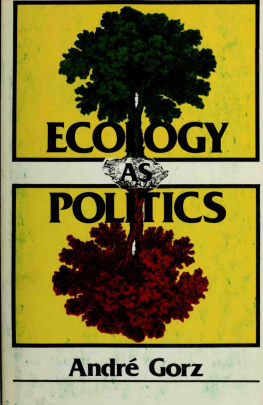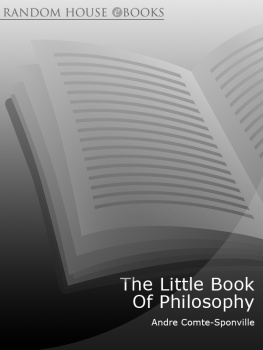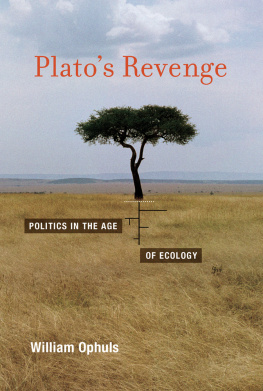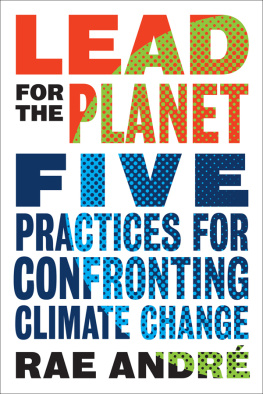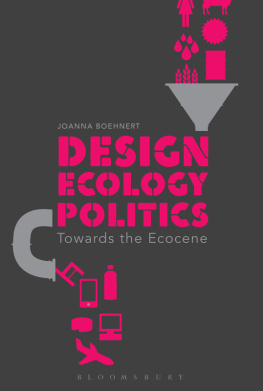André Gorz - Ecology as Politics
Here you can read online André Gorz - Ecology as Politics full text of the book (entire story) in english for free. Download pdf and epub, get meaning, cover and reviews about this ebook. year: 1980, publisher: South End Press, genre: Politics. Description of the work, (preface) as well as reviews are available. Best literature library LitArk.com created for fans of good reading and offers a wide selection of genres:
Romance novel
Science fiction
Adventure
Detective
Science
History
Home and family
Prose
Art
Politics
Computer
Non-fiction
Religion
Business
Children
Humor
Choose a favorite category and find really read worthwhile books. Enjoy immersion in the world of imagination, feel the emotions of the characters or learn something new for yourself, make an fascinating discovery.
Ecology as Politics: summary, description and annotation
We offer to read an annotation, description, summary or preface (depends on what the author of the book "Ecology as Politics" wrote himself). If you haven't found the necessary information about the book — write in the comments, we will try to find it.
Ecology as Politics — read online for free the complete book (whole text) full work
Below is the text of the book, divided by pages. System saving the place of the last page read, allows you to conveniently read the book "Ecology as Politics" online for free, without having to search again every time where you left off. Put a bookmark, and you can go to the page where you finished reading at any time.
Font size:
Interval:
Bookmark:
Andr Gorz
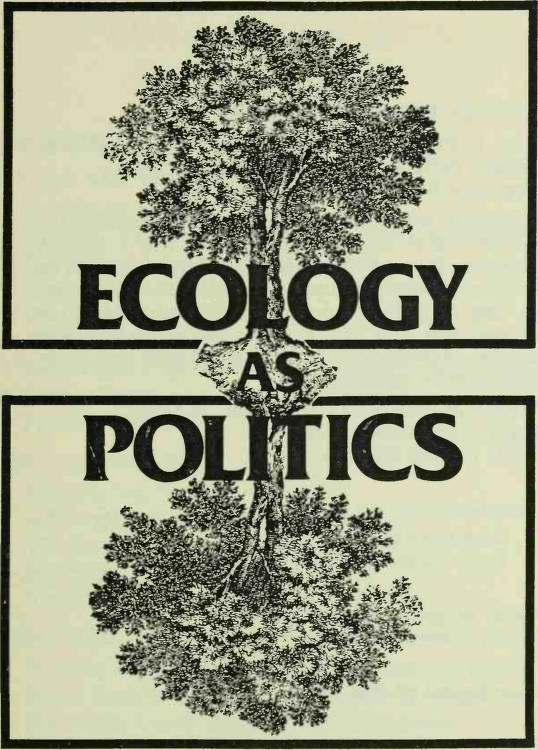
This book was produced in EPUB format by the Internet Archive.
The book pages were scanned and converted to EPUB format automatically. This process relies on optical character recognition, and is somewhat susceptible to errors. The book may not offer the correct reading sequence, and there may be weird characters, non-words, and incorrect guesses at structure. Some page numbers and headers or footers may remain from the scanned page. The process which identifies images might have found stray marks on the page which are not actually images from the book. The hidden page numbering which may be available to your ereader corresponds to the numbered pages in the print edition, but is not an exact match; page numbers will increment at the same rate as the corresponding print edition, but we may have started numbering before the print books visible page numbers. The Internet Archive is working to improve the scanning process and resulting books, but in the meantime, we hope that this book will be useful to you.
The Internet Archive was founded in 1996 to build an Internet library and to promote universal access to all knowledge. The Archives purposes include offering permanent access for researchers, historians, scholars, people with disabilities, and the general public to historical collections that exist in digital format. The Internet Archive includes texts, audio, moving images, and software as well as archived web pages, and provides specialized services for information access for the blind and other persons with disabilities.
Created with abbyy2epub (v.1.7.2)
Translated by Patsy Vigderman and Jonathan Cloud
SOUTH END PRESS, BOSTON
Copyright 1980 by Andre Gorz
First published as Ecologie et politique by Editions Galilee, Paris, France.
Copyright 1975, 1977, Editions Galilee.
Copyrights are still required for book production in the United States. However, in our case it is a disliked necessity. Thus, any properly footnoted quotation of up to 500 sequential words may be used without permission, so long as the total number of words quoted does not exceed 2000. For longer quotations or for a greater number of total words, authors should write for permission from the publisher.
Library of Congress Card Number: 79-64086 ISBN 0-89608-088-9 paper ISBN 0-89608-089-7 cloth
Translated from the French by:
Jonathan Cloud (Part I)
Patsy Vigderman (Parts II, III, and IV)
Cover design by Ann L. Raszmann/Boston Community School
Coordinated by Billy Pope
Design, typesetting, and paste up were done by
South End Press Box 68 Astor Station Boston, MA 02123
UK Distributor: Pluto Press Limited Unit 10 Spencer Court/ 7 Chalcot Road London NWI 8LH
Introduction: Two Kinds of Ecology
I. Ecology and Freedom
1. Ecological Realism
2. Political Economy and Ecology: Marx and Illich
3. Ecology and the Inversion of Tools
4. Ecology and the Crisis of Capitalism
5. The Poverty of Affluence
6. Equality and Difference
7. Social Self-Regulation and Regulation from Outside
8. Seven Theses by Way of Conclusion
A Possible Utopia
II. Ecology and Society
1. Reinventing the Future
2. Affluence Dooms Itself
3. The Social Ideology of the Motorcar
4. Socialism or Ecofascism
5. Twelve Billion People?
III. The Logic of Tools
1. Nuclear Energy: A Preeminently Political Choice
2. From Nuclear Electricity to Electric Fascism
3. Boundless Imperialism: The Multinationals
4. Labor and the Quality of Life
IV. Medicine, Health and Society
Introduction
1. Medicine and Illness
2. Health and Society
3. Science and Class: The Case of Medicine
Epilogue: The Continuing American Revolution
It is inadequate to answer that this question is secondary, and that the main thing is not to botch up the planet to the point where it becomes uninhabitable. For survival is not an end in itself either: is it really worth surviving in a world transformed into a planetary hospital, planetary school, planetary prison, where it becomes the principal task of spiritual engineers to fabricate people adapted to these conditions? (Illich)
To be convinced that this is the world which the technocrats are preparing for us, one has only to consider the new brainwashing techniques being developed in the U.S. and Germany. 1 Researchers attached to the psychiatric clinic of the University of Hamburg, following the work of American psychiatrists and psychosurgeons, are exploring ways of eliminating the aggressiveness which prevents people from accepting the most total forms of frustrationthose of the prison system in particular, but also those of the assembly line, of urban crowding, of schooling, red tape, and military discipline.
We should do well, therefore, to define at the outset what we are struggling for, as well as against. And we should do well to try to understand how, concretely, capitalism is likely to be affected and changed by ecological constraints, instead of believing that these will, in and of themselves, bring about its disappearance.
To do this we must First grasp what an ecological constraint means in economic terms. Consider the gigantic chemical plants of the Rhine valley: BASF in Ludwigshafen, AKZO in Rotterdam, or Bayer in Leverkusen. Each of these complexes represents a combination of the following factors:
natural resources (air, water, minerals) that until now were considered without value and were treated as free goods, because they did not need to be reproduced (i.e., replaced);
means of production (machines, buildings, etc.), i.e., fixed capital, which eventually become obsolete and must conse
quently be replaced (reproduced), preferably by more efficient and more powerful ones so as to give the firm an advantage over its competitors;
labor power, which must also be reproduced (the workers must be housed, fed, trained, and kept healthy).
Font size:
Interval:
Bookmark:
Similar books «Ecology as Politics»
Look at similar books to Ecology as Politics. We have selected literature similar in name and meaning in the hope of providing readers with more options to find new, interesting, not yet read works.
Discussion, reviews of the book Ecology as Politics and just readers' own opinions. Leave your comments, write what you think about the work, its meaning or the main characters. Specify what exactly you liked and what you didn't like, and why you think so.

